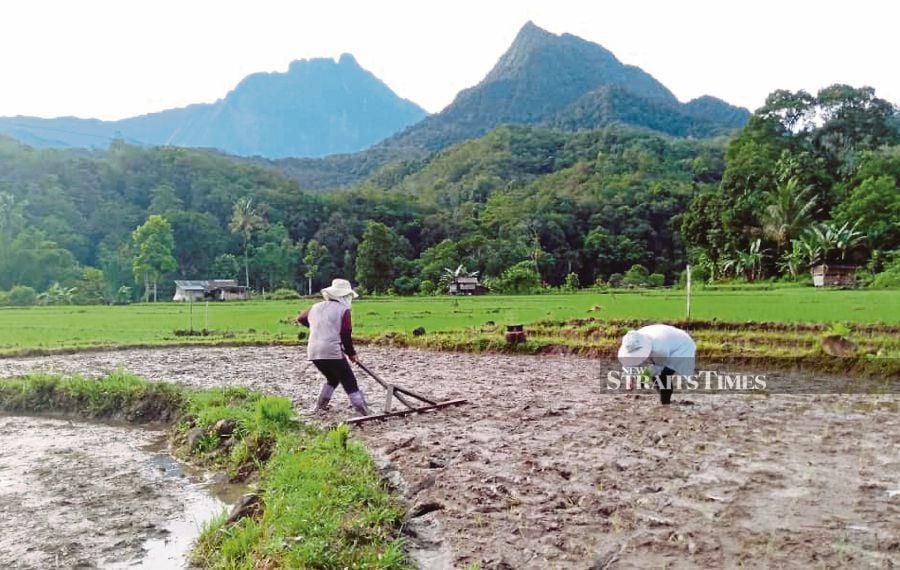AGRICULTURE is back on the global agenda. There are many reasons for this. Food security is one. Environmental impact is another. The recent COP28 meeting in Dubai reserved one whole day to deliberate on food and the climate crisis.
They concluded that food impacts climate and likewise climate impacts food. The question is, how do we act? How do we create more positive synergy between food production and the climate concern?
Here at home, we are also paying more attention to agriculture. We have for far too long placed agriculture on the back burner as we aggressively pushed to industrialise.
We even changed the focus of our leading agriculture university away from farming.
The wake-up call only came when we started feeling the heat of rising food prices and ballooning costs of food imports. There is now talk about reverting to the old name of the agriculture university.
The truth of the matter is the challenges are complex. Many issues contribute to the concerns.
Environmental degradation is one. Indiscriminate clearing of land for agriculture contributes to deforestation, is negative for greenhouse gas balance and a biodiversity concern.
Intensive farming practices result in soil erosion and loss of arable land through nutrient depletion.
Water scarcity and pollution is another concern. Many agricultural practices, especially in the arid regions, are highly water-intensive and contribute to water scarcity.
The excessive use of fertilisers and pesticides have led to water pollution. Not to mention harming the aquatic ecosystems.
Admittedly, the impact of climate change on agriculture is worrying. Changing weather patterns and shifts in temperature can adversely affect crop yields and livestock production.
Agricultural activities, including livestock farming, contribute significantly to greenhouse gas emissions, especially methane.
Large-scale monoculture farming reduces biodiversity, making crops more susceptible to diseases and pests. Agricultural expansion often leads to the destruction of natural habitats.
Of course food insecurity and inequity was the wake-up call to the renewed interest in agriculture. Despite sufficient global food production, there are issues related to unequal distribution, leading to food insecurity in certain regions.
Small-scale farmers, especially in developing countries, lack access to resources, markets and technology.
Industrial agricultural practices have been flagged for concern. Intensive use of chemical fertilisers and pesticides can have negative environmental and health impacts.
Intensive livestock farming raises concerns about animal welfare, environmental pollution and antibiotic resistance.
Then, there is the issue of land use change. The conversion of agricultural land for urban development reduces the available area for farming. Large-scale acquisition of land for agriculture, often by foreign entities, can displace local communities and disrupt traditional farming practices.
There is also the factor related to global trade imbalances. Agricultural subsidies in some developed countries can distort global markets, affecting farmers in developing nations.
Global trade is often dominated by a few major crops, creating vulnerabilities in the food supply chain.
Technology is an important item in agriculture. The issue of technology divide has also consumed much international discourse. There is admittedly a digital and technological divide in agriculture, with some farmers having limited access to modern and efficient technologies.
The adoption of genetically modified organisms (GMOs) has also raised concerns about environmental impacts and long-term health effects. There is concern that some agricultural practices impact negatively on human health.
Residues from pesticides used in agriculture can find their way into the food chain, potentially affecting human health. Widespread use of antibiotics in livestock farming contributes to the rise of antibiotic-resistant bacteria, posing a threat to human health.
As a country, we are also not spared from such concerns. Addressing these challenges requires a holistic approach that considers environmental sustainability, social equity and economic viability.
Sustainable agricultural practices, technological innovation and international cooperation are essential elements in working towards a more resilient and equitable global agricultural system.
Agricultural experts in the country are duty bound to provide advice to the government to resolve the many issues on agriculture. We are not short of policies and blueprints. Many agree that our weakness to execute is a major issue.
The most pressing advice to offer to the government is how we can improve the country's implementation of the many plans that we have already launched.
The writer is Associate Professor at Tan Sri Omar Centre for STI Policy, UCSI University
The views expressed in this article are the author's own and do not necessarily reflect those of the New Straits Times





